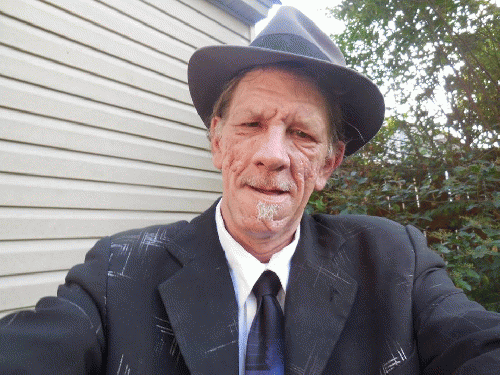She decided that the quality of her life was not enough to go on, so she voluntarily decided to terminate the hydration and feeding, and in a month she died, completely in control of her dying process.
I was on a musical tour of England when I received the last communication I ever got from my mother, a birthday card written a week before she died. All she wrote was "Happy Birthday, Love, Ma." Her hand was as steady as it had ever been. I've never cried a tear for her, and hope I go as well as she did.
What my mother did is kind of a grey area, and I wouldn't have given it any thought had I not seen an interview
of assisted-suicide proponent Dan Diaz by Katie Couric. It was not one of the first issues I would have offhand said to be important to a Supreme Court nominee, but given what Neil Gorsuch has written (and his concomitant good response on marriage equality! He looks like a swing vote), I guess I must merely say: my mother did not commit suicide, but she definitely did decide that she did not want to continue to live helplessly, unable to even feed herself or breathe without technological intervention.
And I stand by the concept that it was her right to make this decision. Just as it was right for Dan Diaz' wife Brittany Maynard, who, due to a brain tumor, was faced with 6 months of increasing pain that no palliative care would touch, to have the option of terminating the agony without legal stigma.
What standards should be applied when the Law meets the idea that one should be able to choose to stop living? What is "terminal"? I'm not prepared to say what all the definitions of terminal illness are, but Brittany Maynard's case certainly qualified by any reasonable legal standard or class of standards.
In the case of my mother, a longtime outdoorswoman, a charter boat captain and mate in her second career, she was not actually given a terminal diagnosis. Although she was 77, the doctors had apparently succeeded in excising the cancer from one of her already diseased lungs. She might have made 80 in the oxygen tent, and she reasonably opted not to face that slow torture and, further, terminal expense by declining to further follow medical procedures for superannuation.
Each individual life is precious. However, no one should ever be forced to survive due to massive technological intervention in order to satisfy the niceties of the Law, or allay some people's fears of a "slippery slope" leading to state MANDATED, rather than state permitted, euthanasia.
My mother had said over many years that she was too busy living, and indeed declined to attend the funerals of her parents. She has no stone, and her ashes were scattered in the Atlantic, south and east of Montauk, Long Island, in fishing grounds where she took much big game. She took her existentialism very seriously.
Me, I am resolved never to allow myself to die in bed. And at 67, without grandchildren (though that conceivably might change, at least by adoption), I have outlived everyone in the family and am responsible to and for no one. If my death is not sudden-- you never know-- I shall choose how I will go through it, and bankrupting myself on medical care is not an option for me (especially not if these GOPers do something to my Medicare).
I shall die on my feet.
Ring the alarum bell! Blow wind, come wrack,
At least we'll die with harness on our back.
(Macbeth, V. v. 50-51)






